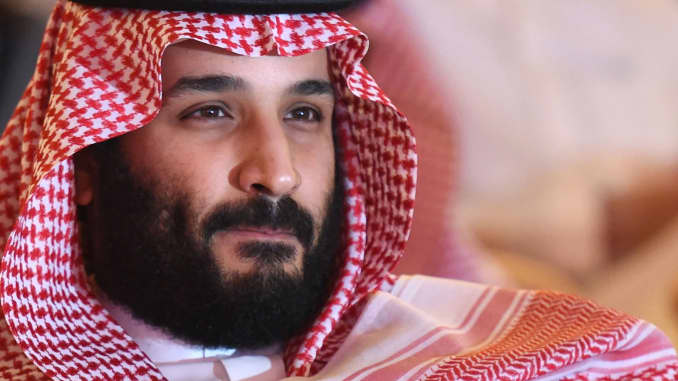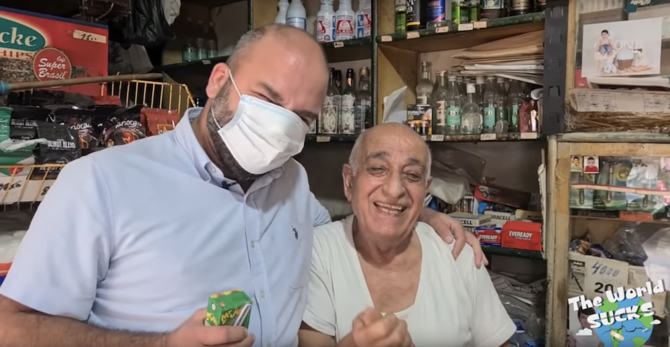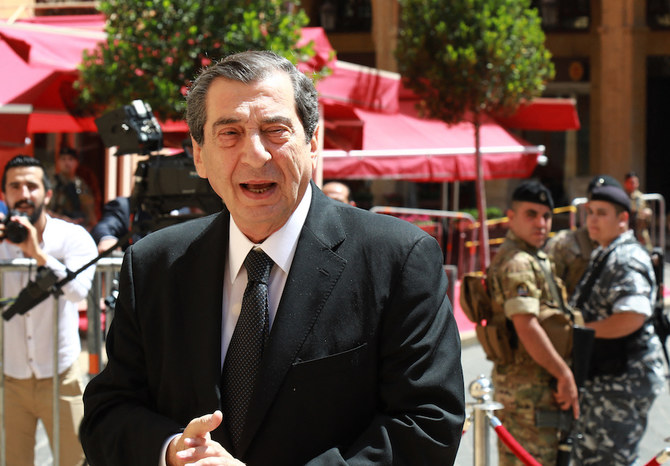
By Emily DeCiccio -- cnbc -- The Saudi crown prince’s actions in the killing of journalist Jamal Khashoggi might have left the kingdom’s sovereign wealth fund vulnerable to consequences, according to a former leading diplomat in the Obama administration. The Biden administration on Friday released a previously classified intelligence report that assessed Mohammed bin Salman of Saudi Arabia approved the plan to assassinate Khashoggi in 2018. The Saudi sovereign wealth fund, known as the Public Investment Fund, is chaired by MBS. It appears to have played a role in purchasing the aircraft that ferried Khashoggi’s killers to Turkey, where the murder occurred. “If this is the case, it could become a target for American human rights sanctions,” according to Joel Rubin, a former deputy assistant secretary of State. That could, in turn, “create an economic earthquake,” he said. “If the United States determines that the Khashoggi killing was a targeted human rights violation, then the perpetrators and backers of that killing could be sanctioned under the Magnitsky Act,” Rubin said.
The Global Magnitsky Human Rights Accountability Act authorizes the president to impose economic sanctions, freeze any U.S. assets, and deny entry into the U.S. to any foreign person who has engaged in human rights abuse or corruption, while prohibiting Americans from doing business with him or her. The Magnitsky Act has been used against Russian President Vladimir Putin’s cronies. Putin called it, “A purely political, unfriendly act.” Shortly after the release of Friday’s intelligence report, Secretary of State Antony Blinken announced that the U.S. banned 76 people from Saudi Arabia. He called it the “Khashoggi Ban.” Blinken added that the U.S. will not tolerate individuals who threaten or assault activists, dissidents and journalists on behalf of foreign governments. There was, however, no direct action taken against MBS. The Saudi government rejected the findings of the U.S. report. Sovereign wealth funds are prevalent among oil-rich countries. They provide a haven where countries can stockpile significant wealth, and store that money in a self-controlled coffer.
by egyptindependent.com — An airplane loaded with medical and food supplies from Egypt was sent to the Lebanese army on Thursday as …

By CALINE MALEK -- arabnews.com -- DUBAI: No good deed goes unpunished, it is said. But thanks to one Beirut philanthropist, some good deeds end up being not only rewarded but also recorded. The World Sucks (TWS) — a Lebanese social video channel devoted to documenting acts of kindness — was created just over a year ago to motivate the beneficiaries to pay it forward and give back to the community. “As much as you try to help, you will never be able to solve all the problems,” the founder of TWS, who prefers to remain anonymous, told Arab News. “But a way to get close to that goal was to make videos to motivate people to either pay for someone’s food or offer them a free ride.” In one of the channel’s earliest videos, the founder begs local cab drivers for a free ride, claiming to have no money. As a reward for their kindness, drivers who took pity on the “penniless” passenger were handed a large sum of cash — and their pleasant surprise caught on camera. “It was really fun,” he said, recalling the adrenaline rush of that first encounter. “I couldn’t sleep all night thinking about what happened.”
The first six videos were paid for out of the founder’s own pocket. But as the channel’s popularity grew, clocking up at least 31,600 Instagram followers and 5,200 YouTube subscribers, donations soon began flooding in, allowing TWS to go bigger and bolder. “We always try to find different people to surprise, sometimes taxi drivers, sometimes cart vendors or random people,” the founder said. “We then shifted to target hard-working or under-appreciated individuals, because times got really tough in Lebanon with the financial situation and the lockdowns due to the coronavirus pandemic.”

By TAREK ALI AHMAD -- arabnews.com -- LONDON: Lebanese MP and deputy speaker Elie Ferzli has clashed with the media with three explosive televised appearances that saw him insult journalists, leave midway through an interview and claim his word is the constitution on Wednesday. Ferzli’s rampant and aggressive behaviour — in a press conference, on DW, and then on LBCI — comes after he and 10 other lawmakers jumped the queue and received the first shot of the coronavirus disease (COVID-19) vaccine the day before. Faced with mounting pressure to explain the jump, Ferzli figured that the best way to defend his actions was by insulting journalist and presenter Malek Maktabi on his show “Ahmar bil Khat al Areed” on LBCI after Maktabi asked Ferzli a simple question on his eligibility to take the COVID-19 vaccine.
“I wasn’t simply bothered by the way he was talking and from the tone in which he was talking to me, he insulted me, but I tried to stay calm as much as I can because at the end of the day he is my guest,” Maktabi told Arab News. “I wanted to get back to my question, I was keen on getting that answer, I did my homework, I knew exactly what my first question was going to be and how I was going to proceed with the interview. So if he doesn’t answer my first question, I won’t be able to get what I want out of the interview.” Ferzli went on to tell Maktabi: “Don’t you dare say you are not sure when you speak to me,” adding: “My words are the constitution.” Earlier, Ferzli walked out of a live interview with Ahmed Abida on the arabic version of Deutsche Welle TV, DW Arabic. “You are speaking with the wrong guy,” Ferzli remarked, adding: “I do not need to beg you to speak.”
Khazen History


Historical Feature:
Churches and Monasteries of the Khazen family

St. Anthony of Padua Church in Ballouneh
Mar Abda Church in Bakaatit Kanaan
Saint Michael Church in Bkaatouta
Saint Therese Church in Qolayaat
Saint Simeon Stylites (مار سمعان العامودي) Church In Ajaltoun
Virgin Mary Church (سيدة المعونات) in Sheilé
Assumption of Mary Church in Ballouneh
1 - The sword of the Maronite Prince
2 - LES KHAZEN CONSULS DE FRANCE
3 - LES MARONITES & LES KHAZEN
4 - LES MAAN & LES KHAZEN
5 - ORIGINE DE LA FAMILLE
Population Movements to Keserwan - The Khazens and The Maans
ما جاء عن الثورة في المقاطعة الكسروانية
ثورة أهالي كسروان على المشايخ الخوازنة وأسبابها
Origins of the "Prince of Maronite" Title
Growing diversity: the Khazin sheiks and the clergy in the first decades of the 18th century
Historical Members:
Barbar Beik El Khazen [English]
Patriach Toubia Kaiss El Khazen(Biography & Life Part1 Part2) (Arabic)
Patriach Youssef Dargham El Khazen (Cont'd)
Cheikh Bishara Jafal El Khazen
Patriarch Youssef Raji El Khazen
The Martyrs Cheikh Philippe & Cheikh Farid El Khazen
Cheikh Nawfal El Khazen (Consul De France)
Cheikh Hossun El Khazen (Consul De France)
Cheikh Abou-Nawfal El Khazen (Consul De France)
Cheikh Francis Abee Nader & his son Yousef
Cheikh Abou-Kanso El Khazen (Consul De France)
Cheikh Abou Nader El Khazen
Cheikh Chafic El Khazen
Cheikh Keserwan El Khazen
Cheikh Serhal El Khazen [English]
Cheikh Rafiq El Khazen [English]
Cheikh Hanna El Khazen
Cheikha Arzi El Khazen
Marie El Khazen